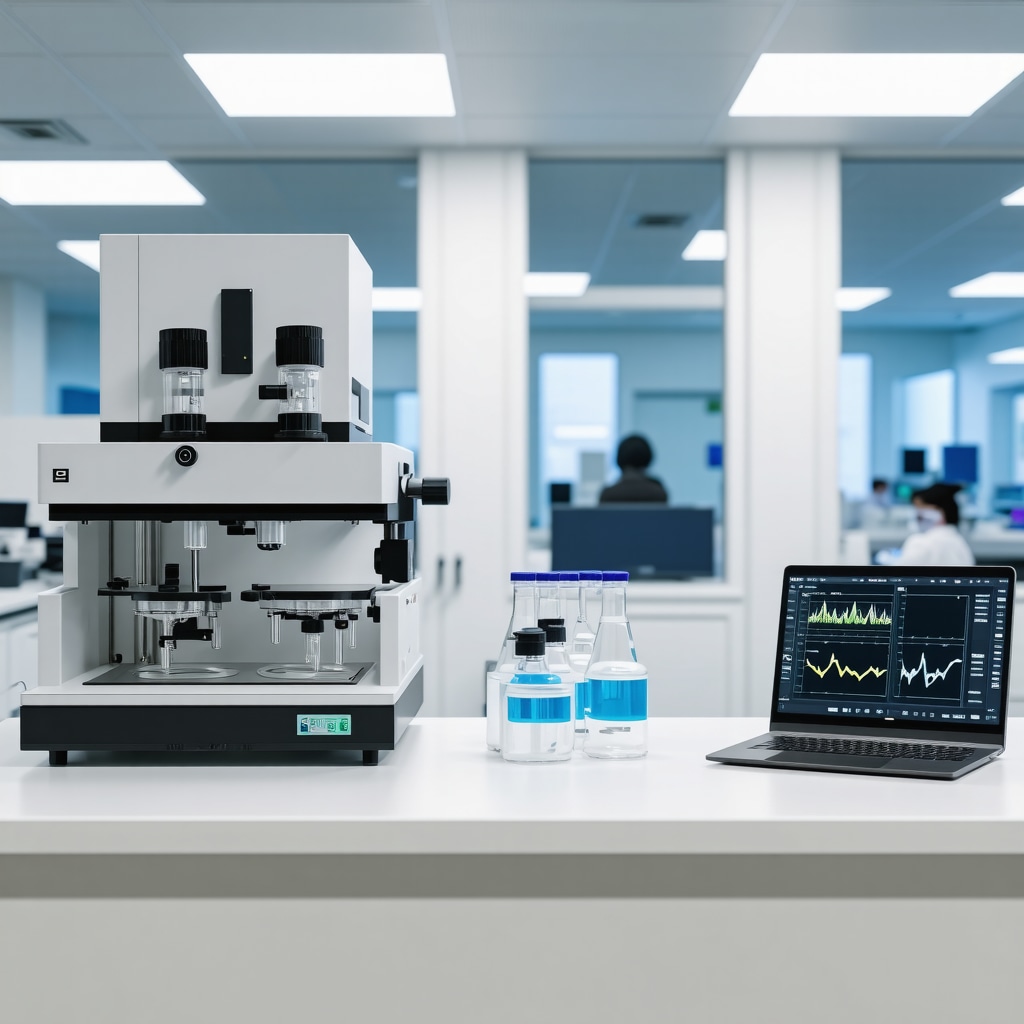Unlocking the Silent Signals: Understanding Low Testosterone in Men Over 40
As men cross the threshold of 40, subtle yet profound hormonal shifts often begin to sculpt their physical and mental landscapes. Among these, declining testosterone levels can silently impact vitality, mood, and overall well-being. San Diego hormone specialists emphasize that recognizing early signs of low testosterone is crucial—not just for restoring energy but for safeguarding long-term health. This article delves into the nuanced signs men should watch for, informed by expert insights and practical experience.
When Energy Fades: The Hidden Fatigue Behind Low Testosterone
One of the most common complaints among men experiencing testosterone decline is an uncharacteristic and persistent fatigue. Unlike everyday tiredness, this lethargy does not resolve with rest and often coexists with decreased motivation. Experts in San Diego note that this exhaustion stems from testosterone’s pivotal role in maintaining muscle mass and metabolic function, which, when diminished, disrupts energy production at the cellular level.
What Are the Psychological Clues That Men Often Overlook?
Beyond physical symptoms, low testosterone subtly erodes mental sharpness and emotional balance. Men may notice increased irritability, difficulty concentrating, and even symptoms akin to mild depression. San Diego clinicians underscore that these cognitive and mood changes frequently go unrecognized as hormonal issues, leading to delayed diagnosis and treatment. Understanding this mind-body connection is essential for timely intervention.
The Muscle-Mass Mystery: Why Strength Disappears with Low Testosterone
Testosterone is a cornerstone hormone for muscle synthesis and strength maintenance. After 40, men with lower testosterone levels often observe a gradual loss of muscle bulk and increased body fat, particularly around the abdomen. San Diego hormone experts highlight that this shift not only affects appearance but also contributes to metabolic syndrome risks. Strategic hormone evaluation and personalized plans can help counteract this decline.
Sleep Disturbances and Libido: The Intimate Consequences of Hormonal Decline
Difficulty falling or staying asleep and a noticeable drop in sexual desire are hallmark signs frequently reported by men with testosterone deficiency. Sleep apnea and insomnia can be exacerbated by hormonal imbalances, while libido reduction impacts relationships and self-esteem. San Diego’s hormone therapy specialists advocate for comprehensive assessments to address these intertwining issues holistically.
How Do San Diego Experts Diagnose and Approach Low Testosterone?
Diagnosis begins with detailed symptom evaluation accompanied by precise blood testing to measure free and total testosterone levels. San Diego clinics emphasize individualized treatment, often integrating bioidentical hormone replacement therapy (BHRT) alongside lifestyle modifications such as nutrition optimization and strength training. This comprehensive approach reflects a sophisticated understanding of hormone health beyond simple supplementation.
For men curious about natural methods and advanced therapies, San Diego hormone therapy clinics provide tailored solutions that combine expert care with the latest scientific advancements.
Have you noticed any changes in your energy or mood after 40? Share your experience below or explore more expert tips on boosting testosterone naturally in San Diego here.
For further scientific grounding, the National Institutes of Health offers an authoritative review on testosterone deficiency and its systemic effects.
When Lifestyle Meets Hormones: The Role of Nutrition and Exercise
Reflecting on my own journey navigating low testosterone, I realized that hormone therapy alone isn’t a magic bullet. San Diego experts often stress that lifestyle choices significantly influence outcomes. For instance, a diet rich in healthy fats and lean proteins supports testosterone production, while regular resistance training can amplify muscle synthesis. I began incorporating weightlifting thrice a week and noticed not only improved strength but also a surprising lift in my mood and energy levels.
It’s fascinating how these lifestyle tweaks complement bioidentical hormone replacement therapy (BHRT). Clinics like those in San Diego customize plans that blend medical treatment with lifestyle coaching, fostering holistic wellness. This synergy reminded me of how interconnected our systems are – hormones, nutrition, and physical activity all dance together to shape well-being.
Listening to Your Body: The Emotional Undertones of Low Testosterone
One aspect that often goes unspoken is the emotional toll low testosterone can take. I found myself grappling with subtle irritability and a creeping sense of apathy, which initially puzzled me. San Diego specialists highlight that mood swings and cognitive fog aren’t just incidental; they’re clues urging men to seek help.
Engaging with a community or therapist can be invaluable. Sharing experiences helped me realize I wasn’t alone, and it underscored the importance of addressing mental health alongside physical symptoms. If you’re feeling this way, know that it’s a valid part of the journey and that resources are available to support you.
How Can Men Over 40 Recognize When It’s Time to Seek Professional Help?
This question puzzled me for a long time. When do fatigue, mood changes, or diminished libido cross from normal aging into a need for professional assessment? San Diego’s approach is to consider symptom severity, duration, and impact on quality of life. If these symptoms persist despite lifestyle adjustments, it’s wise to consult a hormone specialist.
Early intervention can prevent cascading health issues, such as metabolic syndrome or osteoporosis. I found that a simple blood test and open conversation with my provider illuminated a path forward. For a comprehensive understanding, resources like the San Diego hormone replacement therapy guide offer insightful information tailored for men navigating these changes.
The Promise and Precautions of Bioidentical Hormone Replacement Therapy
Bioidentical hormone replacement therapy (BHRT) was a game-changer for me, but it came with questions and cautious optimism. San Diego practitioners emphasize the importance of personalized dosing and regular monitoring to minimize risks and maximize benefits. The tailored nature of BHRT means that no two treatments are alike, reflecting the unique hormonal landscape of each individual.
While BHRT can restore vitality, it’s essential to maintain regular follow-ups and adjust therapy as needed. This ongoing partnership with your healthcare provider was a reassuring aspect of my experience. It underscored that managing low testosterone is a dynamic process, not a one-time fix.
If you’re curious about natural support alongside or instead of BHRT, exploring natural testosterone boosting strategies in San Diego might offer complementary approaches worth considering.
Have you experienced changes in energy, mood, or strength as you’ve aged? Feel free to share your story or questions in the comments below – your insights might just help someone else on this path.

Precision in Practice: Navigating the Complexities of Testosterone Therapy in Men Over 40
While bioidentical hormone replacement therapy (BHRT) offers promising avenues for restoring vitality in men experiencing low testosterone, its complexity demands a nuanced approach. San Diego hormone experts emphasize that therapy must be individualized, considering factors such as baseline hormone levels, comorbid conditions, and patient lifestyle. The pharmacokinetics of testosterone formulations—ranging from topical gels to injectables and pellets—affect absorption rates and serum stability, necessitating tailored dosing schedules to optimize outcomes.
Moreover, the interplay between testosterone and other endocrine axes, including the hypothalamic-pituitary-gonadal (HPG) axis, requires continual monitoring to prevent suppression of endogenous production. Advanced diagnostic tools such as liquid chromatography–mass spectrometry (LC-MS) assays are increasingly utilized in specialized clinics for accurate testosterone quantification, surpassing older immunoassay methods in sensitivity and specificity.
What Are the Long-Term Cardiometabolic Implications of Testosterone Therapy in Aging Men?
Emerging research presents a paradoxical landscape regarding testosterone therapy’s effects on cardiovascular health. While normalization of testosterone levels can improve insulin sensitivity, lipid profiles, and body composition—thus potentially mitigating metabolic syndrome risks—some studies have raised concerns about thromboembolic events and erythrocytosis. San Diego endocrinologists advocate for comprehensive baseline cardiovascular risk assessments before initiating therapy, alongside periodic hematocrit monitoring to detect polycythemia early.
The American Heart Association underscores that individualized risk-benefit analysis is paramount, particularly in men with preexisting cardiovascular disease. The integration of testosterone therapy within a broader preventive cardiology framework—encompassing diet, exercise, and pharmacotherapy—optimizes safety and efficacy.
Integrating Psychoneuroendocrinology: Addressing Cognitive and Emotional Dimensions of Low Testosterone
Beyond the somatic manifestations, testosterone’s influence on brain function is garnering heightened attention. Testosterone modulates neurotransmitter systems and neuroplasticity, impacting memory, executive function, and mood regulation. San Diego specialists are pioneering approaches that incorporate psychoneuroendocrinology to better understand and treat cognitive fog and depressive symptoms associated with hypogonadism.
Neuroimaging studies reveal that testosterone therapy can enhance hippocampal volume and connectivity, correlating with improved cognitive performance. However, these benefits appear contingent on achieving physiological hormone levels without overshooting into supraphysiological states, which may paradoxically impair cognition. This delicate balance calls for multidisciplinary collaboration between endocrinologists, neurologists, and mental health professionals.
How Can Advanced Biomarkers Inform Personalized Testosterone Treatment Plans?
Cutting-edge biomarker panels now allow clinicians to assess inflammatory markers, sex hormone–binding globulin (SHBG) levels, and genetic polymorphisms influencing androgen receptor sensitivity. These data enrich clinical decision-making, enabling truly personalized testosterone therapies that maximize benefit while minimizing side effects.
For instance, elevated SHBG may necessitate adjustments in dosing or alternative therapeutic strategies to ensure bioavailable testosterone adequacy. Genetic insights into androgen receptor variants can predict individual responsiveness and risk profiles, guiding more precise interventions.
Engaging with San Diego hormone specialists who utilize these advanced diagnostics empowers men to navigate the complexities of hormonal health with confidence and clarity.
Interested in exploring how personalized hormone therapy could transform your health journey? Connect with San Diego’s leading experts to design a tailored plan that aligns with your unique physiology and lifestyle.

Harnessing Next-Generation Diagnostics: Elevating Testosterone Management
In the evolving landscape of hormone optimization, San Diego specialists are increasingly leveraging state-of-the-art diagnostic technologies to refine testosterone therapy. Beyond traditional serum assays, the adoption of liquid chromatography–mass spectrometry (LC-MS) has set a new benchmark for precision, enabling detection of subtle hormonal fluctuations that inform individualized treatment trajectories. This technological leap facilitates a granular understanding of patients’ endocrine milieu, guiding nuanced adjustments that transcend one-size-fits-all protocols.
How Does Integrating Genetic and Inflammatory Biomarkers Revolutionize Personalized Testosterone Therapy?
Current advances incorporate comprehensive biomarker panels that assess variables such as sex hormone–binding globulin (SHBG), inflammatory cytokines, and polymorphisms in androgen receptor genes. These biomarkers elucidate individual variations in testosterone bioavailability and receptor sensitivity, which are pivotal in tailoring therapy. By decoding genetic predispositions and inflammatory status, clinicians in San Diego can preemptively mitigate adverse effects and optimize therapeutic efficacy, embodying a truly bespoke approach to hormone health.
Engaging with such precision diagnostics not only enhances outcome predictability but also aligns with emerging personalized medicine paradigms, ensuring men over 40 receive care calibrated to their unique biological context.
Synergizing Endocrinology with Lifestyle Medicine: A Holistic Paradigm for Longevity
San Diego experts advocate for integrative protocols that marry hormone therapy with targeted lifestyle interventions. Nutritional strategies emphasizing micronutrient sufficiency—particularly zinc, vitamin D, and omega-3 fatty acids—complement testosterone restoration by supporting endocrine and mitochondrial function. Concurrently, exercise prescriptions focusing on high-intensity interval training (HIIT) and resistance modalities potentiate anabolic signaling pathways, fostering muscle hypertrophy and metabolic health.
This synergy between endocrinology and lifestyle medicine cultivates resilience against age-associated comorbidities, reinforcing hormonal balance as a cornerstone of sustainable vitality.
Emerging Therapeutics and Safety Considerations: Navigating the Future Landscape
Cutting-edge research in San Diego is exploring selective androgen receptor modulators (SARMs) and novel peptide therapies as adjuncts or alternatives to conventional testosterone replacement. These agents promise targeted anabolic effects with attenuated systemic risks, though long-term data remain under rigorous evaluation. Meanwhile, vigilance regarding therapy-related polycythemia, cardiovascular safety, and prostate health remains paramount, underscoring the necessity of continuous monitoring within multidisciplinary care frameworks.
For men seeking to explore these advanced therapeutic avenues, consultation with San Diego’s hormone specialists ensures access to evidence-based innovations coupled with robust safety protocols.
Referencing authoritative insights, the American Heart Association’s comprehensive review delineates cardiovascular considerations integral to testosterone therapy decision-making.
Ready to elevate your understanding and management of low testosterone? Connect with San Diego’s leading experts today to craft a personalized, cutting-edge plan tailored to your physiology and lifestyle.

Frequently Asked Questions (FAQ)
What are the earliest signs that testosterone levels might be declining in men over 40?
Early signs often include unexplained fatigue, decreased libido, subtle mood changes such as irritability or mild depression, and difficulty concentrating. These symptoms can be mistaken for normal aging but warrant professional evaluation to determine if low testosterone is the underlying cause.
How is low testosterone accurately diagnosed beyond standard blood tests?
Modern diagnosis involves precise quantification of free and total testosterone using advanced techniques like liquid chromatography–mass spectrometry (LC-MS), which surpass traditional immunoassays in sensitivity and specificity. Additionally, assessing biomarkers such as sex hormone–binding globulin (SHBG), inflammatory markers, and genetic polymorphisms can provide a personalized hormonal profile to guide therapy.
What role does bioidentical hormone replacement therapy (BHRT) play, and how is it personalized?
BHRT restores testosterone levels using hormones chemically identical to endogenous testosterone. Personalization involves tailoring dosage and delivery method (topical, injectable, pellet) based on individual baseline hormone levels, comorbidities, lifestyle factors, and ongoing monitoring to optimize benefits and minimize risks such as erythrocytosis or cardiovascular issues.
Can lifestyle changes alone improve testosterone levels in aging men?
Yes. Nutritional strategies emphasizing adequate intake of zinc, vitamin D, and omega-3 fatty acids, combined with regular resistance and high-intensity interval training (HIIT), can enhance endogenous testosterone production and improve muscle mass, mood, and metabolic health. Lifestyle interventions complement medical therapies for a holistic approach.
Are there cognitive or emotional effects linked to low testosterone, and can therapy help?
Low testosterone can impair memory, executive function, and mood regulation due to its role in neuroplasticity and neurotransmitter modulation. Testosterone therapy, when carefully dosed, may improve cognitive performance and alleviate depressive symptoms, but requires multidisciplinary management to balance benefits and avoid overtreatment.
What are the cardiovascular risks associated with testosterone therapy?
While testosterone normalization can improve insulin sensitivity and lipid profiles, there are concerns about thromboembolic events and elevated hematocrit levels. Pre-treatment cardiovascular risk assessment and regular monitoring of hematocrit and blood pressure are essential to ensure therapy safety, especially in men with preexisting heart conditions.
How do genetic and inflammatory biomarkers influence testosterone treatment plans?
Genetic polymorphisms affecting androgen receptor sensitivity and levels of inflammatory cytokines can alter testosterone bioavailability and patient response. Integrating these biomarkers enables clinicians to customize therapy, optimize efficacy, and minimize adverse effects, embodying precision medicine principles in hormone management.
What advanced therapies are emerging beyond conventional testosterone replacement?
Selective androgen receptor modulators (SARMs) and novel peptide therapies are under investigation for their ability to provide anabolic benefits with reduced systemic risks. Though promising, these treatments require further validation and should be accessed through specialized clinics offering evidence-based care and vigilant monitoring.
When should men over 40 seek professional help for suspected low testosterone?
If symptoms such as persistent fatigue, mood disturbances, decreased libido, or muscle loss interfere with quality of life despite lifestyle efforts, consulting a hormone specialist is advisable. Early intervention can prevent complications like metabolic syndrome and osteoporosis.
How is testosterone therapy integrated with lifestyle medicine for sustainable results?
Therapy is most effective when combined with tailored nutrition, exercise regimens, and mental health support. This integrative approach enhances hormonal balance, metabolic health, and overall well-being, promoting longevity and functional vitality.
Trusted External Sources
- National Institutes of Health (NIH) – Testosterone Deficiency Review: Provides comprehensive, evidence-based insights into the pathophysiology, diagnosis, and management of testosterone deficiency, underpinning clinical understanding.
- American Heart Association (AHA) – Cardiovascular Implications of Testosterone Therapy: Offers detailed analysis of cardiovascular risks and benefits associated with testosterone treatments, guiding safe clinical practice.
- Endocrine Society Clinical Practice Guidelines: Authoritative guidelines on testosterone therapy in men, including indications, monitoring, and risk mitigation strategies reflective of expert consensus.
- Journal of Clinical Endocrinology & Metabolism (JCEM): Publishes cutting-edge research on hormone therapies, biomarker innovations, and neuroendocrinology relevant to testosterone management.
- San Diego Hormone Therapy Clinics and Research Centers: Local specialized centers that integrate advanced diagnostics and personalized therapy approaches, exemplifying best practices in clinical hormone optimization.
Conclusion: Synthesizing Expert Insights on Low Testosterone in Men Over 40
Understanding low testosterone in men over 40 requires a sophisticated synthesis of clinical evaluation, advanced diagnostics, personalized bioidentical hormone replacement therapy, and comprehensive lifestyle modification. Expert endocrinologists in San Diego advocate for precision medicine approaches that integrate genetic and inflammatory biomarkers with patient-centered care, optimizing therapeutic outcomes while safeguarding cardiovascular and cognitive health.
Testosterone’s intricate role transcends mere physical vitality, influencing mental acuity, emotional balance, and metabolic resilience. Harnessing next-generation diagnostics and embracing holistic lifestyle strategies empowers men to reclaim vitality and longevity sustainably.
If you or someone you know is navigating the challenges of hormonal decline, engaging with specialized professionals who offer cutting-edge, individualized care is imperative. Share your experiences, ask questions, and explore related expert resources to deepen your understanding and actively participate in your health journey.

